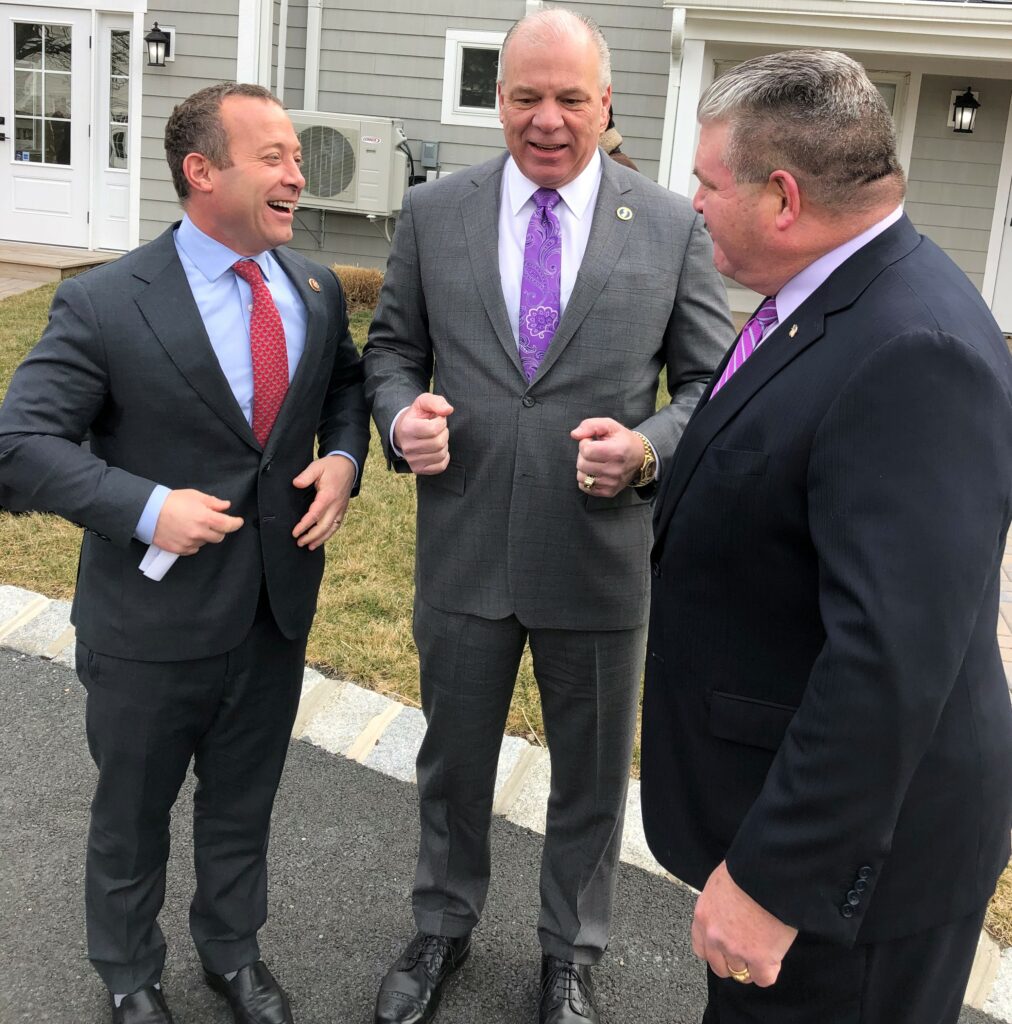Up North, Sweeney Pitches ‘Rural Enterprise Zones’
Listen to audio version of this article

LAFAYETTE – Protecting the Highlands region of northwest New Jersey was the last consequential act of Gov. James McGreevey. He signed it into law in the summer of 2004, just a day or so before announcing plans to resign.
Most of the region’s Republican lawmakers opposed the law, calling it a “land grab” and objecting to the lack of compensation for impacted property owners. While some of this was partisan politics in action, it was also true that the law included the need for compensation.
Now, 16 years later, a group of bipartisan lawmakers came together Thursday morning to announce plans to do something about the compensation problem.
The plan is to create Rural Enterprise Zones covering the Highlands Region and the Pinelands Region in southern New Jersey. The Pinelands were preserved under Gov. Brendan Byrne almost 30 years before the Highlands Act was passed.
The centerpiece of the plan is to reduce the state’s sales tax, which is now 6.625 percent by slightly more than 2 cents to about 4.3 cents on a dollar. This is not identical to Urban Enterprise Zones, which cut the sales tax in half, but the idea is the same, – a reduced tax theoretically will spur business investment.
There’s more. The idea also includes taking one cent of collected sales tax revenue in the regions and sending it to the relevant county governments for direct property tax relief. Additionally, businesses in the created Rural Enterprise Zones at both ends of the state would get a $1,500 tax credit for every employee hired.
The main players in this announcement, which took place at a chilly, if not downright cold, outdoor press conference were Sen. Stephen Oroho, a Republican from Sussex County, Senate President Stephen Sweeney, who journeyed more than two hours from southern New Jersey and Rep. Josh Gottheimer, whose 5th District covers a lot of the Highlands region.
Sweeney dismissed concerns that reducing tax revenue may be ill-advised. He said income tax and other tax revenue is running ahead of projections this fiscal year. Oroho agreed, suggesting that affluent people are keeping more of their money in New Jersey after the state eliminated its estate tax. Sweeney can certainly control the Senate, but he would need a Democratic sponsor in the Assembly to make this plan reality.
Gottheimer has nothing to do with state legislation. But the congressman did summarize both the attributes and the challenges of the Highlands area, particularly in Sussex and Warren counties.
The congressman praised the region for its scenic beauty and as a great place to hike and ski. But Gottheimer also said home values in Sussex and Warren are down and that foreclosures are up. Many towns are also losing population.
He and others said there were two components of the Highlands Act when it was signed – protecting watershed lands and compensating owners who lost the right to build.
The first part has been done; now it’s time to work on the second part. That was the message of the morning.
A cynic may observe that the proposed plan would not provide payments direct to impacted property owners. But it is designed to reduce their sales taxes and possibly, stabilize property taxes. After 16 years, some may see that as a step in the right direction.
Sweeney had no trouble dramatizing the plight of some Highlands property owners.
“Land that was once valuable was (now) just dirt,” he said.











Leave a Reply